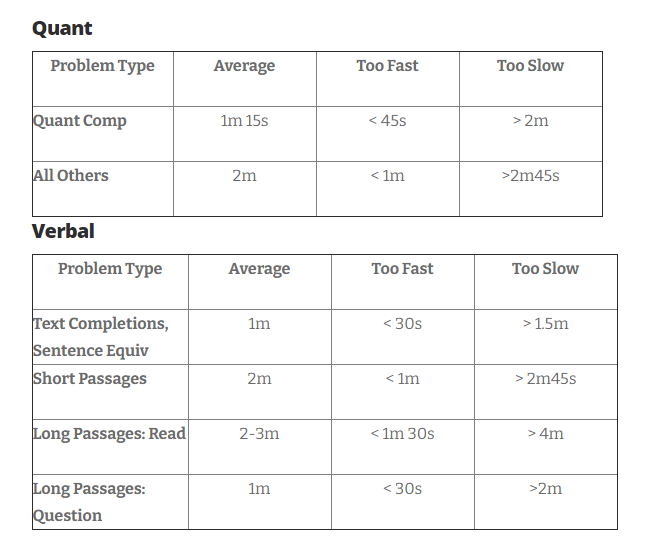The GRE or the Graduate Record Examination is a standardized and the most popular admission test for graduation schools worldwide. It is your pathway to Ivy League colleges like Harvard, Yale, Dartmouth, and other reputed institutions. You know the drill- register for the GRE, enroll in GRE classes, do your GRE prep, give GRE mock, GRE Mock Analysis, ace the GRE examination, then apply to the colleges, go through the loan procedures, and tada! You are on a flight to reach your dream college.
We are sure you read a lot of articles on how to do your GRE prep well. And all of them would have talked about the necessity of giving GRE mock tests. But there is another important activity besides just giving the mocks. It is to analyze it properly. This is crucial for improving your performance, however, most aspirants do not recognize the importance of this activity and ignore it. In this article, we will talk about a tested approach to analyzing your GRE Mock Results.
Follow this structure and make changes according to your strong and weak sections.

Ace your GRE prep with the best!! @GREKing
Why give GRE Mock Tests?
The first benefit of giving GRE mocks is the opportunity to assess your preparation until now. GRE is primarily a speed test. The questions will be rudimentary, but the duration of the sections is strictly limited. So you have to test yourself in a similar environment repeatedly, make sure you are not missing out on easy questions because you got stuck on a difficult question, and most importantly, can hold your concentration for 3 hours 45 minutes straight.
Besides, the GRE mock tests also give a chance to figure out your strengths and weaknesses concerning the subject areas. From the careful analysis, you will understand your areas for improvement and can curate a study plan accordingly.
Steps To Follow:
We will be providing this analysis based on the GREKing Mocks and it's review/ preparation dashboard. However, the approach will remain the same even if you are analyzing different GRE mock tests.
1.Checking for Exceptions
How different has your GRE mock experience been from the original exam? Did you take a longer break or pause the test in between? Did you not attempt the AWA section or skip some questions because you ran out of patience? There can be a lot of disruptions when you are attempting a mock from home.
There can be connectivity problems, phone calls, or family members conversing. Check for these situations. All of these might either inflate or deflate your score and hence while analyzing try to set a threshold of deviation in marks these reasons have caused.
2. The Overview
Get a top view of your performance by checking the total score, accuracy ratio, the average time per question, etc. In the review section of the GREKing mocks, there will be a section-wise analysis. In that, you will get to see how you have fared in each of the sections. Without much deep diving, just check for the accuracy rate and the number of correct/incorrect/skipped questions for a section.
You will also get a bar chart analysis for the sectional performance. This analysis will reveal any broad trends concerning a particular section. That is, if quantitative reasoning as a whole is your problem area, this sectional analysis will reveal that.
3. Deep Diving into Sections
For the majority of test-takers, the problems aren't section-specific, they are topic and area-specific. This is where further analysis comes into the scenario. The area level and topic level review options will give you the same data - accuracy rate, the number of correct/ incorrect/ skipped questions, time for each question but on specific areas like Arithmetic, Algebra, Text Completions, etc. From this, you will notice if there is any trend to your mistakes.
Are you getting most of the Arithmetic questions right? Then this is your strong area. Are you getting most of the Reading Comprehension questions wrong? You know what you have to do. However, even Arithmetic itself has several topics. If you want further, more refined data then go to the topic-wise analysis.
See how many questions of Ratio were there, and how many did you get correct. If you see you are doing good in all types of RC questions except the Inference type ones, then RC is not your problem, Inference type questions are.
Does GRE Mock Analysis also reveal the Why?
Through all the above steps you figured out the problem areas in your performance. By this time, you know which are your strong sections and in which sections you need to improve. But like Arithmetic, improvement is a broad topic. Only if you know your specific problem, why are you going wrong or is not able to attempt a question, can you work on that and better your results.
Don't worry. The GRE mock analysis report of GREKing also helps you figure this out. Please remember, this article follows the pattern of the GREKing dashboard. However, you can do this whole analysis manually with the help of any decent mock review report.
The Excel Sheet Approach to Mock Analysis
There can be multiple reasons you might get an answer wrong in the exam. It can be time management, careless errors, difficult questions or not knowing the concept.
- In an excel sheet mark two columns- Incorrect Answers and Skipped Questions. Underneath the Incorrect answers, again make three columns- Time Management, Careless Errors, Logical Errors. Under the Skipped Questions column make another two- Time Management, Conceptual. The rows will have the topics. Be as broad or as detailed as per your convenience. Broadly, you can name the rows as arithmetic, algebra, text completions, etc. If you want details, you can further break it down to topics under each section like Average, Mixtures, Inequalities, etc.
- Now put every question you got wrong in the GRE mock or any question you did not attempt, under one of these column heads. Think and make a good judgment here. You might want to analyze the questions based on ease/ difficulty. Then you can add another column or write that in brackets beside each question.
- Once you fill the grid, color code it. This will make it very easy for you to figure out what exactly is causing the dip in marks
The Issues
While analyzing the mock results, you will figure out broadly two problem areas- Conceptual and Time Management.
Conceptual
For the conceptual problem, the only solution is more and more practice. If you have the GREKing GRE full course, then in the dashboard only you will get sufficient Practice problems, e-books, webinars, and tutorial videos. However, even if you do not have the full course, GREKing has sufficient Ebooks to practice from.
- GREKing Free GRE Ebooks
The content of these e-books is designed keeping in mind the actual GRE paper. The questions are of different difficulty levels to help you from an amateur stage up to the pro level.
Some of the Ebooks are:
-
- GREKing 50 Most Repeated Words
- GREKing 50 Must Solve Text Completion Questions
- GREKing 50 Must Solve Sentence Equivalence Questions
- GREKing 100 Must Solve Quantitative Comparison Questions
We are adding more Ebooks every day so that you can have access to more resources. So be sure to check back and refresh the website regularly.
Time Management
If from the Excel sheet, you find out that a lot of your incorrect/skipped answers are because of poor time management, then it's time to deep dive into that issue. First, look at the time spent on each question from the topic-wise analysis tab or question-wise analysis. Focus especially on the outliers. Those are questions that you attempted in very little time and questions that you took a lot of time to mark. If possible make another Excel sheet with two columns. Too fast and too slow.
Mark the question numbers accordingly under each column. Now color code the questions which you got right, in green and the ones you got wrong, in red. Check if there is any pattern to it. Are most of your wrong questions in the too-fast category? That means in the hurry of finishing questions you are getting them wrong or are judging the questions too quickly therefore not understanding it properly. It can also be that you were running out of time and hence marked all the questions in a jiffy.
A rather more uncommon reason is you were not aware of the concept of the question and thus marked it quickly and moved on to the next question. That is a good reason, then. And likewise for the too-slow questions. For those, pay special attention to the ones you spent a lot of time on and then got wrong or still couldn't attempt. They are special problem ones.
Certain popular benchmarks are followed for determining how much time should be given to one question. We are reproducing one such method here, from the Manhattan Preparation plan. Please note, this is strictly for reference. You do you.

We hope this approach to analyzing a GRE mock will help in your preparation.
All the best! Carpe Diem!
Top 10 Quick GRE Prep Tips. | GRE Math Formulas Cheat Sheet.

Comments are disabled for now